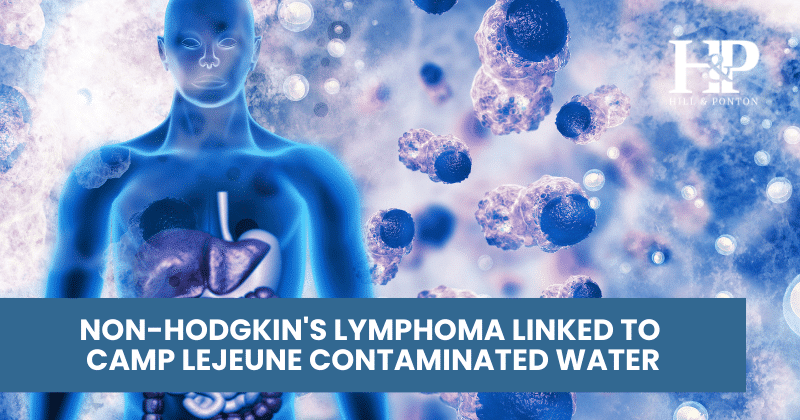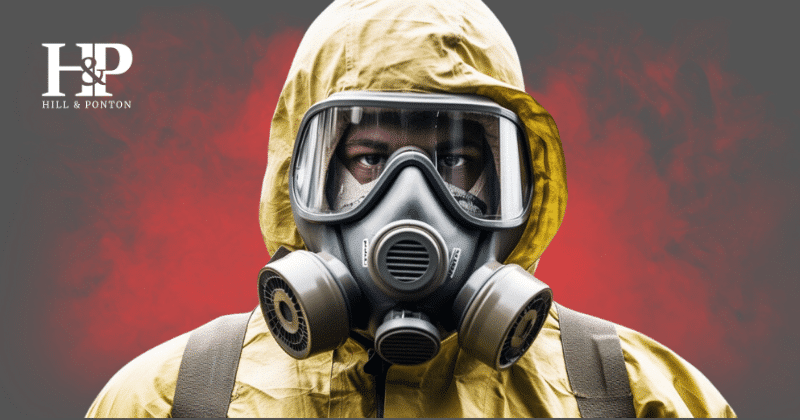Spanning the years between 1953 and 1987, an insidious peril permeated the grounds of the U.S. Marine Corps Base Camp Lejeune in Jacksonville, North Carolina. Military personnel, their family members, and civilian staff unknowingly drank and utilized water tainted with hazardous chemicals.
The repercussions of this decades-long exposure have manifested in several health complications, some of which are still being identified and understood today.
One of the grave health concerns linked to this contamination is non-Hodgkin’s lymphoma.
Non-Hodgkin’s Lymphoma and Camp Lejeune
The history of Camp Lejeune isn’t solely a chronicle of military discipline and dedication; it’s also marred by the unintended exposure of thousands to waterborne toxins with long-term health implications.
Research has increasingly drawn connections between non-Hodgkin’s lymphoma and the contaminants present in the water supply at Camp Lejeune.
Highlighting the gravity of this health crisis, the VA has reiterated that those who were stationed or resided at Camp Lejeune or MCAS New River from August 1953 through December 1987 may have been subjected to this contaminated water.
In-depth assessments by the CDC have identified two specific on-base water wells as the primary sources of contamination.
These wells were polluted with a plethora of toxic substances, including:
- Trichloroethylene (TCE)
- Perchloroethylene (PCE)
- Trans-1
- Dichloroethylene (DCE)
- Benzene
- Vinyl chloride
Further examinations unveiled an even broader array of contaminants, emphasizing the vast scope of the contamination.
By 1985, the severity of the contamination was undeniable, prompting the eventual shutdown of these compromised wells.
The chief culprits behind this contamination were traced back to a nearby off-base dry cleaning facility and other negligent waste disposal practices.
These actions allowed harmful chemicals to infiltrate the base’s water supply, putting countless individuals at risk.
About Non-Hodgkin’s Lymphoma
Non-Hodgkin’s lymphoma is a cancer that originates in the lymphatic system, the body’s disease-fighting network.
Unlike Hodgkin’s lymphoma, non-Hodgkin’s lymphoma can develop from a variety of lymphocyte cells.
The condition can be both aggressive and non-aggressive, with treatments and prognosis varying accordingly.
Certain chemical exposures, including some of those identified in Camp Lejeune’s water, have been linked to a higher risk of developing non-Hodgkin’s lymphoma.
Recognizing the Symptoms of Non-Hodgkin’s Lymphoma
Early identification and diagnosis of non-Hodgkin’s lymphoma can lead to more effective treatments and better patient outcomes.
Some common symptoms to be aware of include:
- Swollen lymph nodes in the neck, armpits, or groin
- Abdominal pain or swelling
- Chest pain, coughing, or trouble breathing
- Persistent fatigue
- Fever and night sweats
- Unexplained weight loss
Those with a connection to Camp Lejeune during the years of contamination should be especially vigilant about these symptoms.
Am I eligible for VA disability compensation?
You may be eligible for disability compensation payments on a presumptive basis if you meet all of these requirements.
These requirements apply to Veterans, Reservists, and National Guard members.
Both of these descriptions must be true:
- You served at Camp Lejeune or MCAS New River, North Carolina, for at least 30 days total between August 1, 1953, and December 31, 1987, and
- You didn’t receive a dishonorable discharge when you separated from the military
And you must have a diagnosis of 1 or more of these presumptive conditions:
- Adult leukemia
- Aplastic anemia and other myelodysplastic syndromes
- Bladder cancer
- Kidney cancer
- Liver cancer
- Multiple myeloma
- Non-Hodgkin’s lymphoma
- Parkinson’s disease
Evidence shows a link between these conditions and exposure to chemicals found in the drinking water at Camp Lejeune and MCAS New River during this time.
If you resided at Camp Lejeune or MCAS New River, North Carolina, you also may be able to participate in the class-action lawsuit under the Camp Lejeune Justice Act of 2022.
Can I also get health care benefits?
Yes. If you meet the service requirements for Camp Lejeune, you may be eligible to enroll in VA health care.
If you have any of the 15 covered health conditions listed here, you won’t have to pay a copay for care for that condition.
Here are the 15 covered conditions related to Camp Lejeune:
- Bladder cancer
- Breast cancer
- Esophageal cancer
- Female infertility
- Hepatic steatosis
- Kidney cancer
- Leukemia
- Lung cancer
- Miscarriage
- Multiple myeloma
- Myelodysplastic syndromes
- Neurobehavioral effects
- Non-Hodgkin’s lymphoma
- Renal toxicity
- Scleroderma
Note: If you also get VA health care for other conditions that aren’t on this list, you may need to pay a copay for that care.
How Hill & Ponton is Committed to Supporting Affected Veterans
The tragic legacy of Camp Lejeune’s water contamination continues to impact countless lives.
However, with the right legal support, affected individuals can seek and secure the benefits they rightly deserve.
At Hill & Ponton, our primary mission is to advocate for veterans’ rights.
We specialize in VA disability benefits, striving tirelessly to navigate the intricate legal processes on behalf of those who served.
If you or a loved one have been affected by the Camp Lejeune water contamination, our team is here to guide you every step of the way.
Reach Out Today: You’ve served our country; now let us serve you.
Call Hill & Ponton at 1-888-477-2363 for professional assistance.
If you’ve been denied VA benefits and need help filing a claim, we’re here to support you.
Don’t delay—contact us and secure the compensation you deserve.
Click the button below to begin your free case evaluation.





